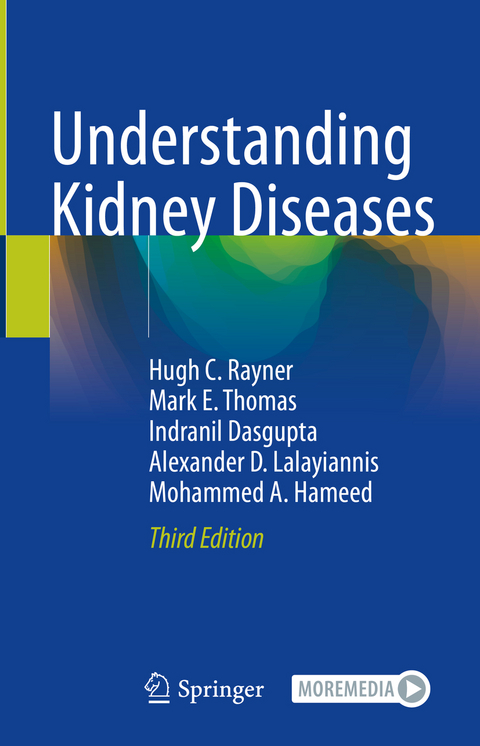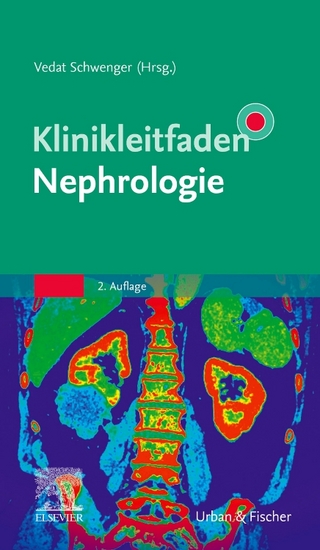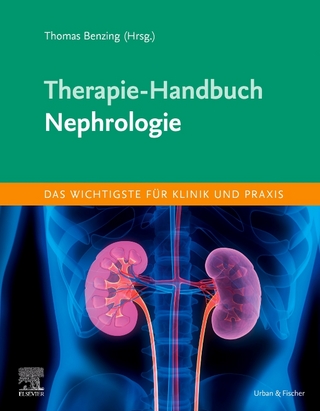
Understanding Kidney Diseases
Springer International Publishing (Verlag)
978-3-031-66348-2 (ISBN)
- Noch nicht erschienen - erscheint am 07.02.2025
- Versandkostenfrei innerhalb Deutschlands
- Auch auf Rechnung
- Verfügbarkeit in der Filiale vor Ort prüfen
- Artikel merken
Understanding Kidney Diseases makes accessible a medical specialty that is commonly regarded by students as difficult. The target audience is undergraduate and non-specialist postgraduate students.
The book is unique in combining the reference material normally found in a nephrology textbook with the everyday clinical applicability of a medical handbook. The chapters are structured on the approach that a clinician should take when assessing someone with a possible kidney problem. The factual content is brought to life by over 60 case studies and is illustrated by a high density of figures, many displaying information in a graphical form that avoids off-putting data and text.
It is an authored book, written in a consistent style that is deliberately clear, concise and easy to follow. Nonetheless, it is referenced in as much detail as would be expected in a conventional textbook. It explains principles and concepts that help students understand and interpret clinical problems. No other textbook of nephrology combines these features.
The book emphasises a patient-centred approach to practice. Students' knowledge can be put it into practice by answering a bank of questions that patients frequently ask, and tested against traditional multiple-choice questions.
In summary, Understanding Kidney Diseases gives students confidence in helping someone with a kidney problem. Praised by leading nephrologists, it is the book the authors wish they could have read when they were students.
Dr Hugh Rayner gained a first-class degree in physiology at Cambridge University, honours at the London Hospital Medical College, and an MD from the University of Leicester. He was a consultant in renal and general medicine in Birmingham from 1993 to 2019, teaching renal medicine to undergraduates and trainee doctors.
Dr Mark Thomas studied Biological Sciences and Medicine at King's College London and Westminster Medical School. He was a Research Fellow at Washington University Medical School in St Louis, USA, studying models of proteinuric renal disease. He has been a Consultant Nephrologist and Physician in Birmingham since 1998. He has had a clinical research interest in acute kidney injury and has chaired clinical guideline development groups for the National Institute for Health and Care Excellence (NICE).
Prof Indranil Dasgupta is a Consultant Nephrologist in Birmingham and Honorary Professor at the Warwick Medical School. He holds posts at the NIHR Clinical Research Network, the British and Irish Hypertension Society, the National Institute for Health and Care Excellence, the Association of British Clinical Diabetologists and UK Kidney Association Group, the UK Kidney Research Consortium CKD and Diabetes Clinical Study Group, the International Society of Nephrology Western Europe Board and European Society of Nephrology Diabesity Working Group, and is past Honorary Secretary of Renal Association UK.
Dr Alexander Lalayiannis is a Consultant Paediatric Nephrologist at the Birmingham Children's Hospital. He gained a PhD as a Paediatric Nephrology Research Fellow at the Great Ormond Street Hospital for Children, focusing on Chronic Kidney Disease - Mineral Bone Disorder. He is a member of the European Society of Paediatric Nephrology (ESPN) Dialysis working group and a board member of the ESPN CKD-Mineral Bone Disorder working group.
Dr Mohammed Hameed studied medicine at the University of Birmingham and completed his nephrology specialty training in Birmingham. He gained a PhD, focussing on pathophysiological features, adherence to antihypertensives and treatment with renal denervation in patients with treatment-resistant hypertension. He is currently a consultant Physician & Nephrologist at Birmingham Heartlands Hospital with a specialist interest in hypertension. He is a member of UK Kidney Association and British and Irish Hypertension Society.
1. Kidney anatomy and physiology - The basis of clinical nephrology.- 2. Measuring kidney function - Quantifying glomerular filtration from laboratory tests.- 3. Plot all the dots - Graphs reveal the progression of kidney disease.- 4. Kidney function in acute illness and acute kidney injury.- 5. How are you feeling? - Symptoms of kidney disease.- 6. What is your lifestyle, occupation and past medical history? - How social, environmental and other medical conditions are linked to kidney disease.- 7. Do you have diabetes mellitus? - How diabetes and its treatments are linked to kidney disease.- 8. Are you pregnant or planning a pregnancy? - How pregnancy affects the kidneys and vice versa.- 9. What is your family history? - The molecular genetics of inherited kidney diseases.- 10. What have you been taking? - Nephrotoxicity from drugs and other chemicals.- 11. Height and weight - The effects of kidney disease on development; links between obesity and kidney disease.- 12. Blood pressure - The interactions between hypertension and kidney disease.- 13. Urine testing - Understanding haematuria, proteinuria and urinary infection.- 14. May I examine you?- Physical signs related to kidney diseases.- 15. Full Blood Count - Haematology results and kidney diseases.- 16. Acid, base and the kidneys.- 17. Calcium, phosphate and bones - How bone and mineral metabolism is altered in kidney disease.- 18. Immunology - Serological tests that help diagnose kidney diseases.- 19. Urinary tract imaging - Strengths and weaknesses of different radiology modalities.- 20. Should we biopsy a kidney? - Balancing the benefits against the risks.- 21. Kidney stone disease - A link between nephrology and urology.- 22. Planning treatment - When and how to prepare for a life with kidney disease.- 23. Kidney replacement therapy - Common problems in dialysis and transplant patients.- 24. Frequently asked questions.
| Erscheint lt. Verlag | 7.2.2025 |
|---|---|
| Zusatzinfo | LV, 446 p. 254 illus., 102 illus. in color. |
| Verlagsort | Cham |
| Sprache | englisch |
| Maße | 155 x 235 mm |
| Themenwelt | Medizinische Fachgebiete ► Innere Medizin ► Nephrologie |
| Studium ► 2. Studienabschnitt (Klinik) ► Pathologie | |
| Schlagworte | Acute Kidney Injury • Chronic Kidney Disease • Diabetes • EGFR • Estimated Glomerular Filtration Rate • immunology • Physiology • Renal Medicine • Renal Pathology • Renal replacement therapy |
| ISBN-10 | 3-031-66348-9 / 3031663489 |
| ISBN-13 | 978-3-031-66348-2 / 9783031663482 |
| Zustand | Neuware |
| Informationen gemäß Produktsicherheitsverordnung (GPSR) | |
| Haben Sie eine Frage zum Produkt? |
aus dem Bereich


